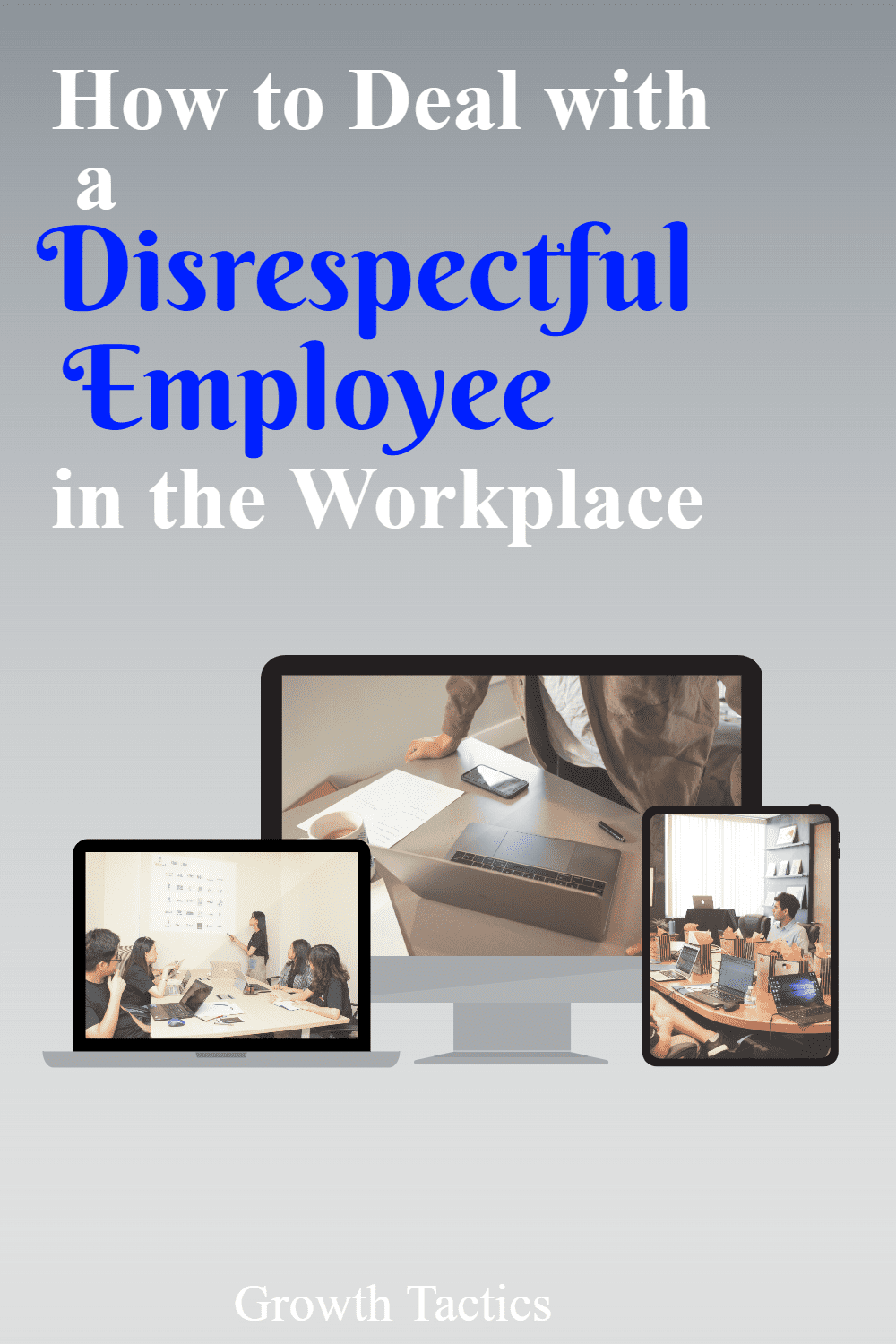How To Deal With Disrespectful Employees

The aroma of freshly brewed coffee usually signals a productive morning at "Sunrise Solutions," but today, a palpable tension hangs in the air. A junior developer openly challenges a senior engineer's design proposal in a meeting, the clash echoing through the otherwise collaborative office. The question lingers: how can leaders navigate these choppy waters of workplace dynamics and steer the ship towards a respectful and productive harbor?
This article delves into practical strategies for addressing disrespectful behavior in the workplace, fostering a culture of mutual respect and open communication. It provides actionable insights for managers and employees alike, emphasizing proactive measures and constructive conflict resolution techniques.
Understanding the Roots of Disrespect
Disrespect can manifest in various forms, ranging from subtle microaggressions to overt insubordination. Understanding the underlying causes is crucial for effective intervention.
Sometimes, it stems from simple misunderstandings or differences in communication styles. Other times, it may be rooted in deeper issues such as workplace stress, unresolved conflicts, or a lack of clear expectations.
According to a 2023 study by the Society for Human Resource Management (SHRM), 45% of employees have experienced or witnessed disrespectful behavior at work. Recognizing the prevalence of this issue is the first step towards addressing it.
Proactive Strategies: Building a Foundation of Respect
Prevention is always better than cure. Creating a workplace culture that values respect from the outset can significantly reduce the incidence of disrespectful behavior.
Establish Clear Expectations
Define clear expectations for professional conduct in your employee handbook and during onboarding. Outline acceptable and unacceptable behaviors, and ensure everyone understands the consequences of crossing the line.
Regularly reinforce these expectations through team meetings and individual performance reviews.
Lead by Example
Managers and leaders must model respectful behavior in all their interactions. Their actions speak louder than words.
Treating everyone with dignity, listening attentively, and providing constructive feedback sets the tone for the entire organization.
Foster Open Communication
Create channels for employees to voice their concerns and provide feedback anonymously. Regular check-ins, team-building activities, and open-door policies can help build trust and transparency.
Addressing Disrespectful Behavior: A Step-by-Step Approach
When disrespectful behavior does occur, it's essential to address it promptly and effectively. Ignoring it can send the wrong message and allow the problem to escalate.
Document the Incident
Keep a detailed record of the incident, including the date, time, location, individuals involved, and a clear description of what happened.
This documentation will be crucial if disciplinary action is required.
Have a Private Conversation
Meet with the employee in a private setting to discuss the behavior. Focus on the specific actions and their impact, rather than making personal attacks.
Use "I" statements to express your concerns (e.g., "I felt disrespected when...").
Set Clear Expectations for Future Behavior
Clearly state what is expected going forward. Outline the consequences of continued disrespectful behavior.
Offer support and resources, such as conflict resolution training or counseling, if appropriate.
Follow Up and Monitor Progress
Regularly check in with the employee to monitor their progress and provide feedback. Be consistent in enforcing your expectations and holding them accountable.
If the behavior persists despite your efforts, consider further disciplinary action, up to and including termination, in accordance with company policy and legal requirements.
The Importance of Emotional Intelligence
Developing emotional intelligence is crucial for both managers and employees. Understanding and managing one's own emotions, as well as recognizing and responding to the emotions of others, can significantly improve workplace dynamics.
Emotional intelligence helps navigate difficult conversations, build stronger relationships, and foster a more empathetic and respectful work environment.
Conclusion: Cultivating a Culture of Respect
Addressing disrespectful behavior in the workplace requires a proactive and consistent approach. By establishing clear expectations, leading by example, and fostering open communication, organizations can create a culture of mutual respect and appreciation.
While conflict is inevitable, learning how to navigate it constructively can lead to stronger teams, increased productivity, and a more positive work environment for everyone. The journey towards a respectful workplace is an ongoing process, requiring continuous effort and commitment from all stakeholders.
Ultimately, a workplace built on respect is not just a nicer place to be; it's a more productive, innovative, and successful one.


















